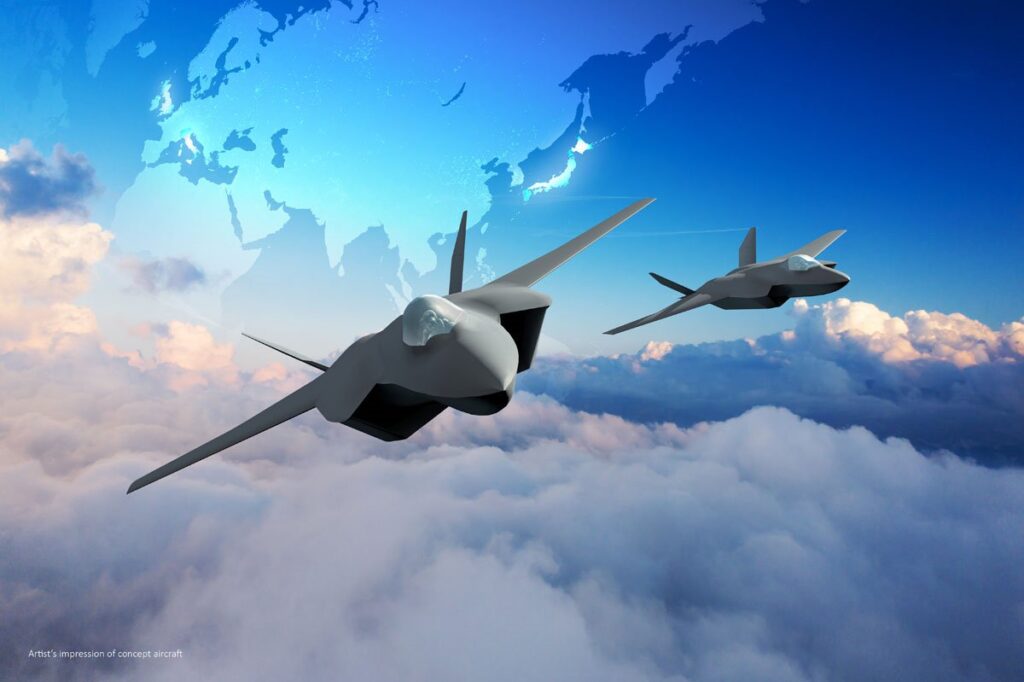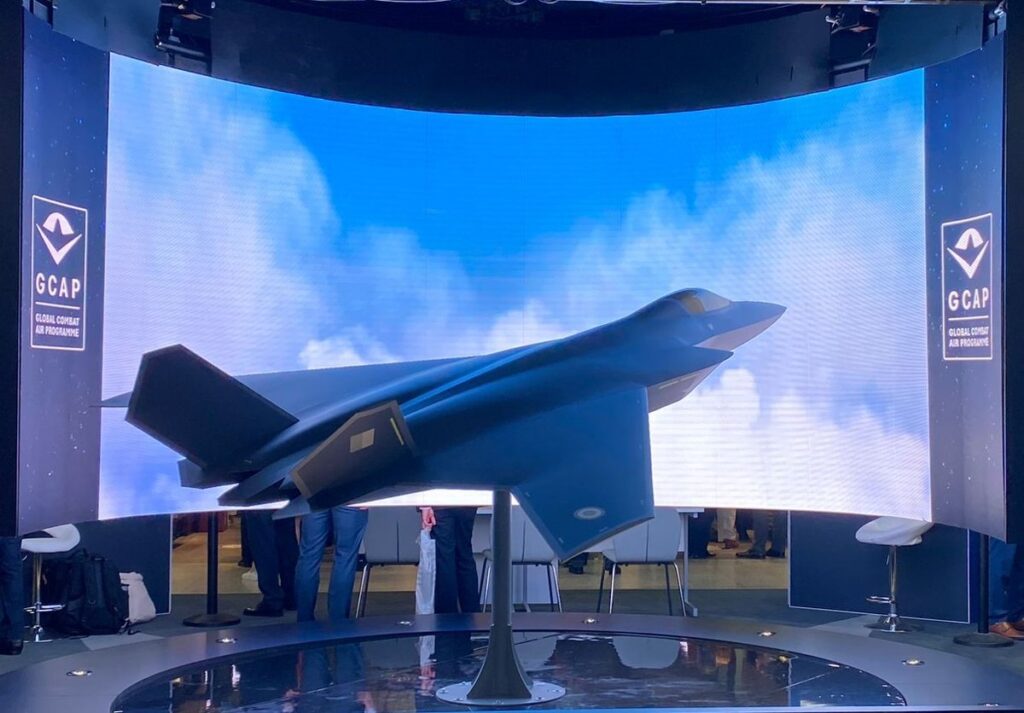Japan Publishes Global Combat Air Programme Fighter Export Guidelines
Japan’s government announced on Tuesday that it would allow the next-generation fighter aircraft it is jointly developing with the United Kingdom and Italy to be exported to “third party” nations not currently involved with the Global Combat Air Programme.
The Japanese government says the legal mechanism only applies to exports of the fighter and not other military equipment, and it was necessary to “secure a position where Japan can contribute to the Global Combat Air Programme on an equal basis with the UK and Italy in order to realize a fighter aircraft that meets the capability requirements necessary under Japan’s security environment and does not interrupt the defense of Japan”.
In a document published alongside the announcement, Tokyo says that exports of the aircraft would be permitted if the country seeking to purchase the aircraft has previously signed an agreement with the Japanese government for the transfer of “defense equipment”:
“Overseas transfers of defense equipment and technology pertaining to finished products to countries other than partner countries of international joint development and production, only if Japan participates in the international joint development and production out of necessity for its defense buildup and direct transfer of finished products to countries other than partner countries is required.”
However, the Japanese government adds that it will not export the aircraft to countries directly engaged in an armed conflict at the time of the export request, in line with its Three Principles on arms exports. Additionally, a cabinet decision will be required to approve the export of the aircraft.

Speaking to the press after the announcement, Japanese defense minister Minoru Kihara told reporters that the specifications and target performance of the aircraft are expected to be finalized over the next five years through collaboration with the UK and Italy.
Japan had previously been developing its F-X as a replacement for the Japan Air Self-Defense Force’s F-2, and merged its efforts with the UK-Italian-Swedish Future Combat Air System program in December 2022, with Sweden subsequently departing the program.
While the United Kingdom’s original goal with FCAS was to develop the core Tempest manned fighter more quickly and more cheaply than previous programs, the Infrastructure and Projects Authority has warned that the UK’s delivery and cost targets for GCAP appear to be not achievable. The UK has since hinted at a need for exports outside development partners to spread out development costs, with Defense Secretary Grant Shapps telling lawmakers in December that GCAP “can only be truly successful if the market is greater than the UK, Italy and Japan”.

